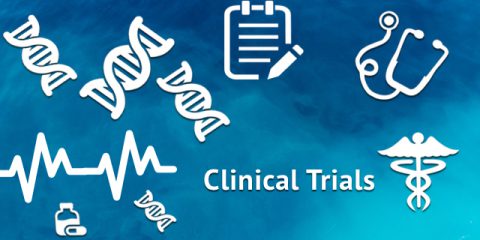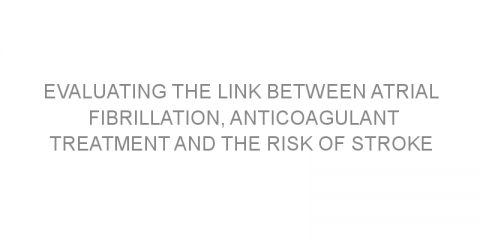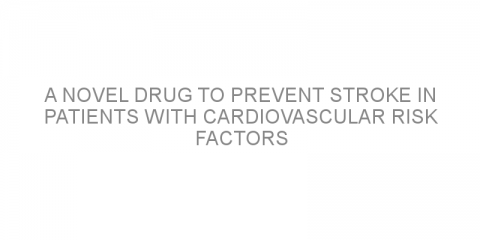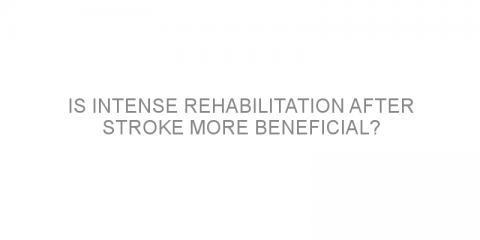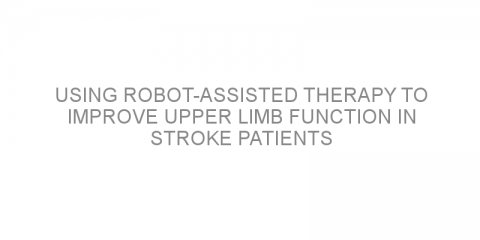In a nutshell This study looked at the link between low vitamin D and cerebral (brain) small vessel disease in patients with a stroke. The authors concluded that patients with low vitamin D levels had a greater burden of cerebral small vessel disease. Some background Cerebral small vessel disease (cSVD) refers to problems associated with small blood...
Read MoreStroke Posts on Medivizor
Do testosterone levels affect mood after a stroke?
In a nutshell This study looked at whether the levels of sex hormones in patients who had a stroke? are associated with mood disturbances. The authors concluded that low testosterone levels are linked to anger proneness and emotional incontinence in these patients. Some background Patients who have had a stroke commonly have mood and emotional...
Read MoreCan a mirror help improve motor function after stroke?
In a nutshell This study looked at the effect of mirror therapy on improving motor deficits in patients with stroke. The authors concluded that mirror therapy may be effective at improving motor function in these patients. Some background Patients with a previous stroke regularly experience physical deficits. These include problems with...
Read MoreMeasuring levels of a lipoprotein to predict the risk of recurrent stroke
In a nutshell This study looked at levels of oxidized low-density lipoprotein (a type of fat cell) as a biomarker to predict recurrent stroke. The authors concluded that high levels of this protein are associated with a higher risk of another stroke in patients with minor stroke and transient ischemic attack (TIA; when blood flow to a part of the brain...
Read MoreAssociation between antidepressants and bleeding
In a nutshell This study looked at the association between antidepressant medication and abnormal bleeding. The authors stated that antidepressants increase the risk of abnormal bleeding, particularly when combined with nonsteroidal anti-inflammatory drugs (NSAIDs). Some background Serotonin reuptake inhibitors (SRIs) are used to treat...
Read MoreClinical Trials Today
Prior to the 20th century, most people lived about 47 years in the developed world because of infectious diseases. In 1940, the first use of penicillin to treat infectious diseases occurred and penicillin became available in 1945 to the general public. Science and research conducted throughout the 1950s, 60s, and 70s, created more antibiotics so that life...
Read MoreEvaluating the link between atrial fibrillation, anticoagulant treatment and the risk of stroke
In a nutshell This study looked at the association between anticoagulant medication used in patients with atrial fibrillation (AF, irregular heartbeat) and its association with stroke. The authors found that AF is commonly undertreated which can impact the risk of stroke. Some background Atrial fibrillation (AF) is one of the highest risk factors...
Read MoreA novel drug to prevent stroke in patients with cardiovascular risk factors
In a nutshell This meta-analysis examined the safety and effectiveness of ticagrelor (Brilinta) to prevent stroke. The authors concluded that ticagrelor was safe and effective at preventing stroke, heart attack and cardiovascular death in patients with cardiovascular risk factors. Some background Ticagrelor (Brilinta) is a medication used to...
Read MoreIs intense rehabilitation after stroke more beneficial?
In a nutshell This study looked at how intensity of rehabilitation may affect the risk of death in stroke patients. The authors determined that high intensity rehabilitation was associated with a decrease in mortality risk following stroke. Some background Many stroke patients experience post-stroke disabilities. These can have an impact on...
Read MoreVegetarian Diet Great for Type 2 Diabetes
Critical benefits may be had from eating a vegetarian diet for people living with type 2 diabetes, a recent meta-analysis of randomized control trials* indicates. Published in Clinical Nutrition, the meta-analysis of nine studies involved over 600 participants taking insulin, oral glucose lowering drugs, lipid-lowering medications or medications to...
Read MoreUsing robot-assisted therapy to improve upper limb function in stroke patients
In a nutshell This study compared proximal robotic rehabilitation to distal robotic rehabilitation at improving upper limb function in stroke patients. The authors concluded that distal robotic rehabilitation may be more effective, particularly at improving distal upper limb function and strength. Some background It is common among stroke patients to...
Read MoreHow important is timing of treatment after ischemic stroke?
In a nutshell This study looked at endovascular treatment for ischemic stroke and the link between stroke onset and beginning treatment. The authors established that shorter time from stroke to treatment resulted in better recovery in ischemic stroke patients. Some background Endovascular treatment (EVT) involves minimally invasive procedures to...
Read More




